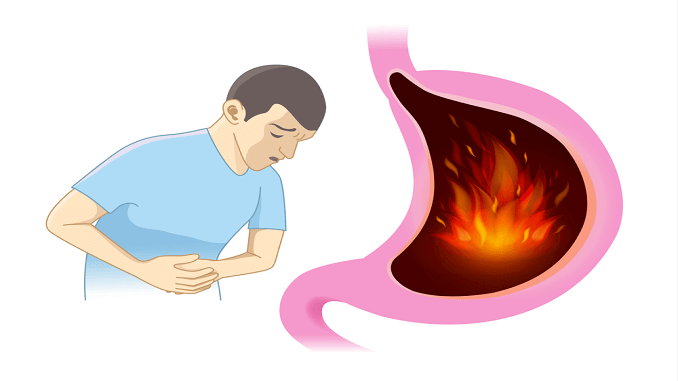
GERD occurs when gastric acid rises in the tube that connects your stomach to your mouth and called the esophagus. This reaction causes irritation in the lining of the esophagus.
Many people experience gastric acid reflux from time to time, but the condition is not diagnosed with reflux in the esophagus unless it is repeated at least twice a week, or once a week on average or severely. Most people with GERD can overcome the problem with simple lifestyle changes, or with some non-prescription medications, but some patients may need strong medication and sometimes surgery.
Symptoms of GERD Symptoms of GERD include some or all of the following symptoms:
The feeling of the burning of the stomach is always after eating, which increases its intensity in the evening.
pain in the chest.
Difficulty swallowing.
Refreshing food or drinks.
The sensation of a lump or lump in the throat.
For people with bedtime reflux, they may also suffer from chronic cough, sore throat, a sensitivity crisis, whether new or old worse and intermittent sleep.
Causes of GERD
Knowing how GERD occurs, we will look at the anatomical structure of the upper part of the digestive system, which consists of the mouth, pharynx, and esophagus, which is connected to the stomach. At the point of contact, there is a circular muscle ring that acts as a valve allowing food from the esophagus to enter the stomach. Other to the esophagus after mixed with stomach acids.
When there is relaxation or weakness in the circular ring known as the opening of the heart, does not perform its basic function, and retreats food mixed acid stomach to the esophagus, which makes the esophagus irritated and inflammation, and then the occurrence of the above symptoms.
Risk factors for GERD There are many factors that may lead to an increased risk of infection such as:
Obesity. The hernia occurs in the diaphragm, affecting the upper part of the stomach.
Pregnancy.
Problems with connective tissue as scleroderma.
Delayed gastric emptying due to problems in the movement of the digestive system.
There are also factors that may aggravate the situation if they already exist, such as:
Smoking.
Eat large meals or eat late in the evening.
Excessive intake of fatty and fried foods.
Over-drinking coffee or alcohol
. Take certain medications such as aspirin.
Treatment of GERD
In the beginning, the doctor will suggest that you change some lifestyle patterns and habits that may lead to GERD. Some simple medicines may also be suggested as a primary treatment, but if the condition does not improve within a few weeks, the doctor will prescribe more effective drugs Times for surgery.
Alternative treatments
Herbs, where chamomile can be taken to relieve symptoms of reflux but consult your doctor first. Relaxation therapy, to relieve tension and anxiety and help relax muscles.

Leave a Reply